RSPB Strumpshaw Fen Slime Mould Plasmodia
3rd – 5th February 2025
Near The Outpost, on a promising sectioned trunk that was populated by a number of slime moulds — we noticed that it also had widespread curry-yellow plasmodia, which we suspect is the plasmodial stage of Badhamia utricularis. The trunk had B. utricularis sporangia and, significantly, what we believe to be the crust fungus Phlebia radiata, which B. utricularis is known to consume [1].
Phlebia radiata on the trunk in the photo below.
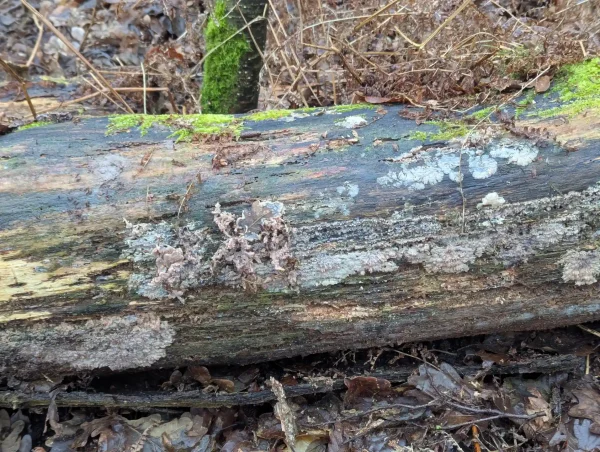
Strumpshaw Fen – 3rd February 2025
Further along the trunk a veiny plasmodium which we saw on the 3rd.
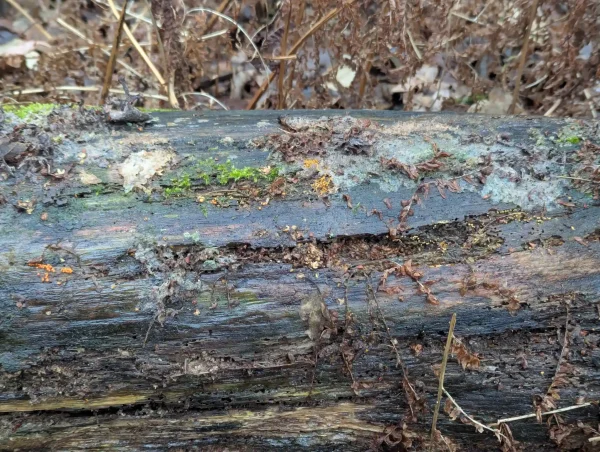
Strumpshaw Fen – 3rd February 2025
In the close up below the slime mould has a somewhat plasmodiocarp form. The white translucent growth is – I believe – Phlebia radiata.
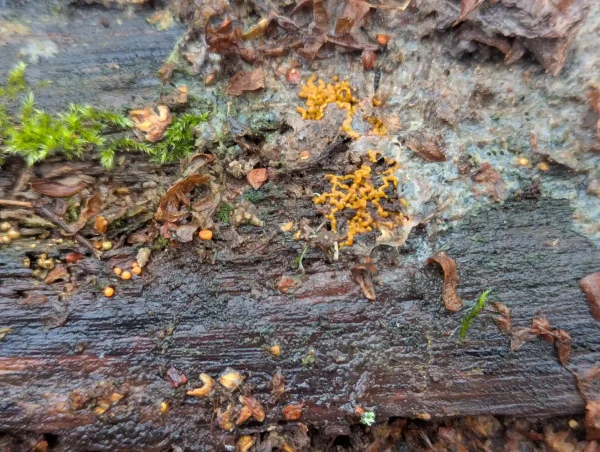
Strumpshaw Fen – 3rd February 2025
The following day the plasmodium had grown further into the Phlebia radiata assuming a more phaneroplasmodial form.
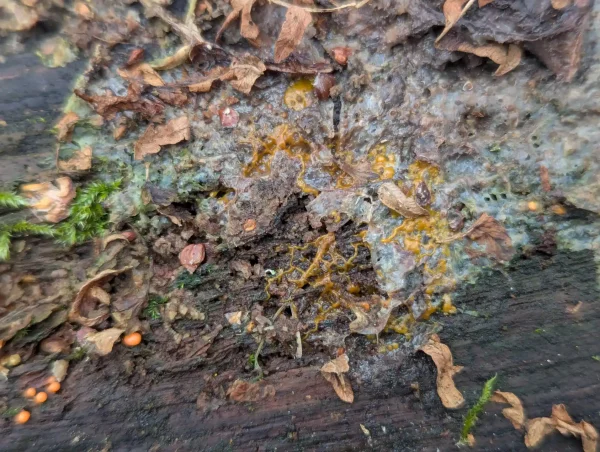
Strumpshaw Fen – 4th February 2025
On the 4th we spotted another plasmodium.
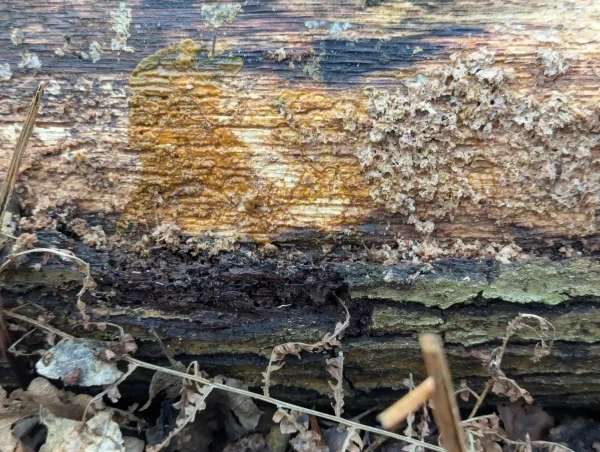
Strumpshaw Fen – 4th February 2025
Close up of the plasmodium.
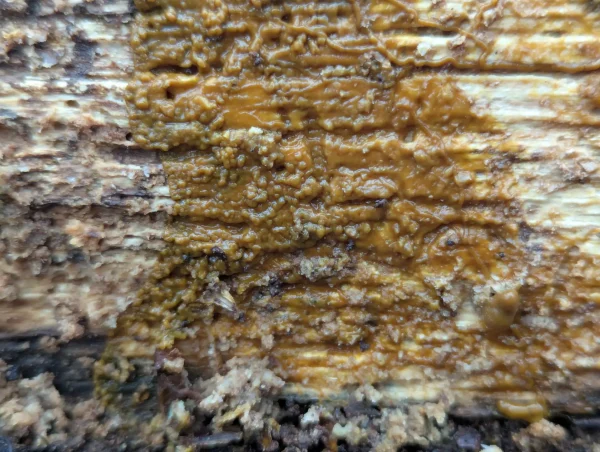
Strumpshaw Fen – 4th February 2025
The next day – the 5th – it had moved to the left
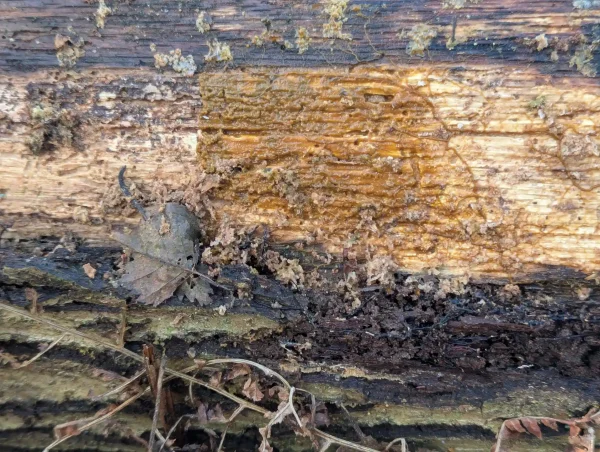
Strumpshaw Fen – 5th February 2025
Also on the 4th, at one end of the trunk some plasmodial veins.
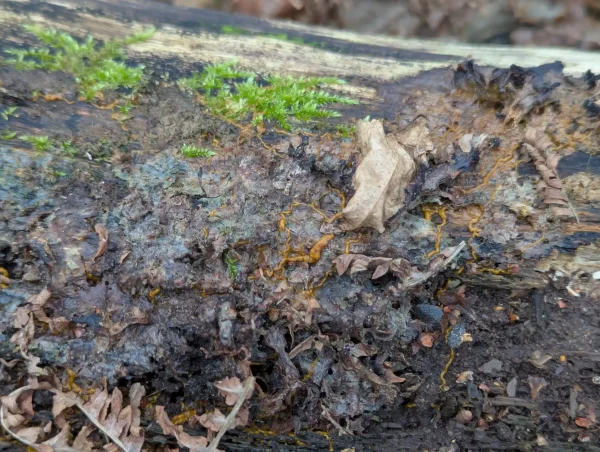
Strumpshaw Fen – 4th February 2025
The next day it has spread extensively (the photo above is more or less centre in the photo below).
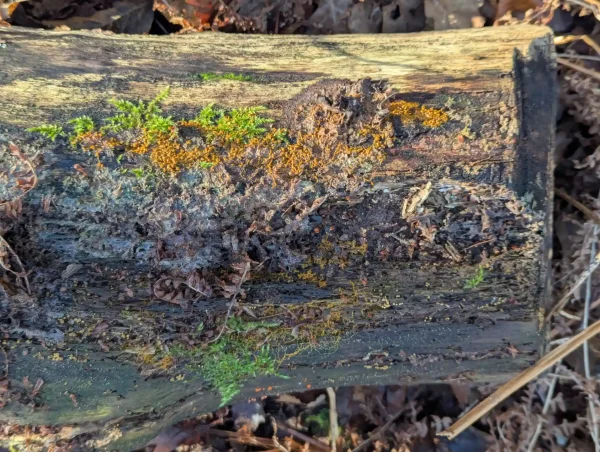
Strumpshaw Fen – 5th February 2025
Centre of the plasmodium above.
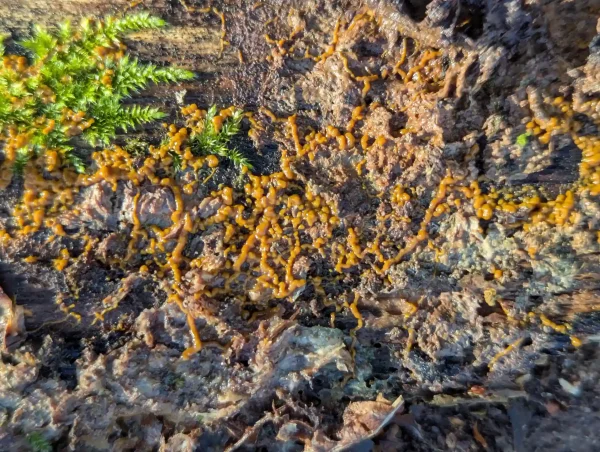
Strumpshaw Fen – 5th February 2025
To the left.
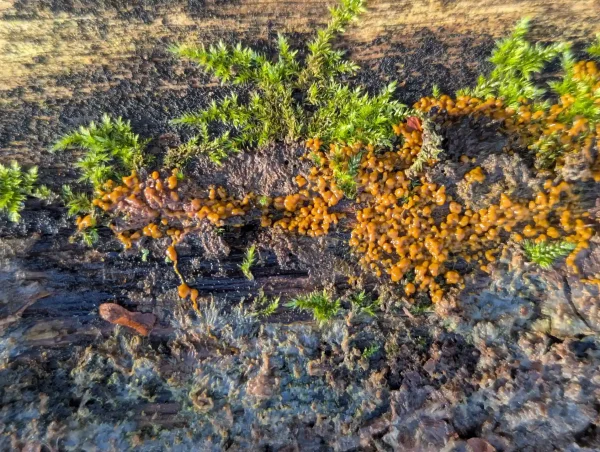
Strumpshaw Fen – 5th February 2025
And to the right.
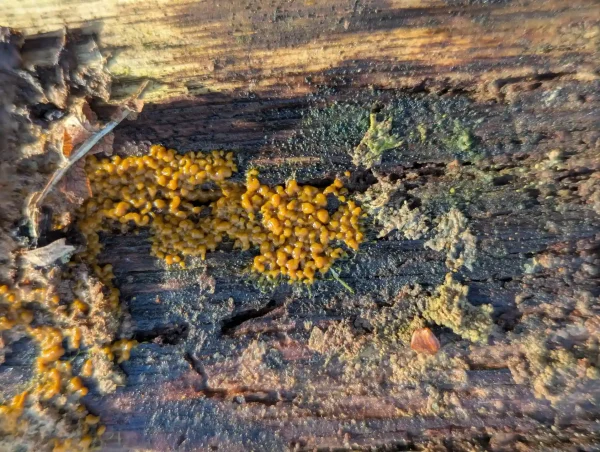
Strumpshaw Fen – 5th February 2025
Also, down the circumference of the trunk at this end.
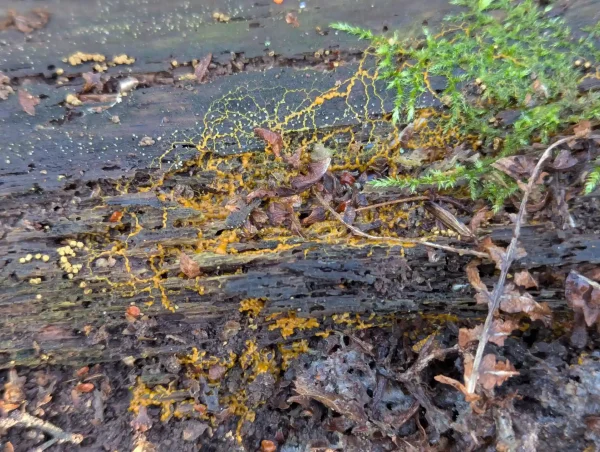
Strumpshaw Fen – 5th February 2025
References:
[1] Bruce Ing – Tansley Review No. 62, The phytosociology of myxomycetes, New Phytologist – Page 187
Strumpshaw Fen is a nature reserve managed by the RSPB adjacent the River Yare, east of Norwich in Norfolk
RSPB Strumpshaw Fen webpage RSPB Strumpshaw Fen Wikipedia entry